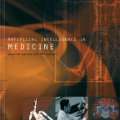The optimal allocation of vaccines to population subgroups over time is a challenging health care management problem. In the context of a pandemic, the interaction between vaccination policies adopted by multiple agents and the cooperation (or lack thereof) creates a complex environment that affects the global transmission dynamics of the disease. In this study, we take the perspective of decision-making agents that aim to minimize the size of their susceptible populations and must allocate vaccine under limited supply. We assume that vaccine efficiency rates are unknown to agents and we propose an optimization policy based on Thompson sampling to learn mean vaccine efficiency rates over time. Furthermore, we develop a budget-balanced resource sharing mechanism to promote cooperation among agents. We apply the proposed framework to the COVID-19 pandemic. We use a raster model of the world where agents represent the main countries worldwide and interact in a global mobility network to generate multiple problem instances. Our numerical results show that the proposed vaccine allocation policy achieves a larger reduction in the number of susceptible individuals, infections and deaths globally compared to a population-based policy. In addition, we show that, under a fixed global vaccine allocation budget, most countries can reduce their national number of infections and deaths by sharing their budget with countries with which they have a relatively high mobility exchange. The proposed framework can be used to improve policy-making in health care management by national and global health authorities.
翻译:疫苗在一段时间内向人口分组的最佳分配是一个具有挑战性的保健管理问题。在流行病的情况下,多种代理机构采取的疫苗接种政策与合作(或缺乏合作)之间的相互作用造成了一个复杂的环境,影响到疾病的全球传播动态。在本研究中,我们从决策代理机构的角度出发,旨在尽量减少其易感染人口的规模,而且必须在有限的供应下分配疫苗。我们假定代理机构不知道疫苗效率比率,我们提议基于汤普森抽样的优化政策,以便了解疫苗平均效率。此外,我们制定了一个预算平衡的资源分配机制,以促进代理机构之间的合作。我们把拟议的框架应用于COVID-19大流行病。我们使用一种世界的极端模式,即代理机构代表世界主要国家,在全球流动网络中互动,以产生多种问题。我们的数字结果表明,拟议的疫苗分配政策比基于人口的政策,在全球范围减少易受感染者、感染者和死亡的人数。此外,我们表明,在固定的全球疫苗分配预算下,大多数国家可以减少其国家感染和死亡人数。我们采用这种模式,通过与各国分享其预算来进行较高的保健管理,因此,它们可以同国家进行较高的保健管理,从而进行较高的交流。



